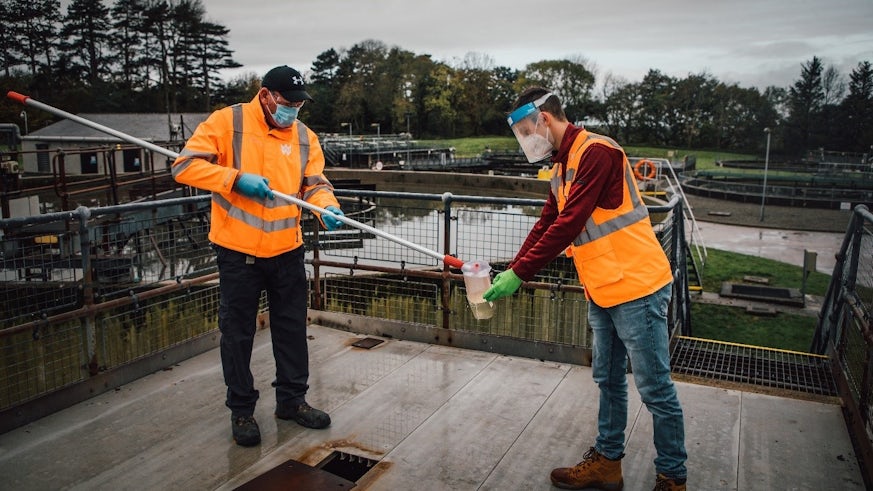Testing wastewater for Covid-19 and communicable diseases
16 January 2023

Wastewater monitoring for levels of Covid-19 in Wales have been expanded to include observation of the levels of communicable diseases and antimicrobial resistance in hospital wastewater.
The programme led by Bangor University - in collaboration with Cardiff University, the Welsh Government, Dŵr Cymru Welsh Water and Hafren Dyfrdwy – initially developed the process of testing wastewater for COVID-19 in the early detection of the Omicron wave across Wales.
This research provides vital data on the prevalence of coronavirus in the community and adding these key sites and additional communicable diseases to the monitoring already in place across Welsh health boards and local authorities will deepen the insight and localised knowledge required in public health decision-making
As well as testing for SARS-CoV-2 and other variants, the team have now established methods for testing for other viruses of interest, including polio, norovirus and other stomach bugs, influenza and the respiratory virus RSV and antimicrobial resistance.
The next stage in the development of the programme sees the existing programme partners work with closely with Public Health Wales to monitor wastewater at nine hospitals in Wales and to expand on the surveillance of polio viruses following the detection of a vaccine derived polio virus in London earlier this year.
“This is all about getting as good a picture of what’s going on as we possibly can. Testing specific settings, such as hospitals, enables us to do better frontline protection of people’s health as well as seeing what new pathogens might be entering the country.
“Testing at mass gatherings such as a festival could also give us an indication of how important these are in disease transmission.” Professor David Jones, lead on the development of the wastewater programme, School of Natural Sciences, Bangor University.
Professor Andy Weightman from Cardiff University’s School of Biosciences and Water Research Institute, co-leading the programme, said: “Expansion of Wales’ Wastewater Monitoring Programme to monitor antimicrobial resistance is a key new development.
“The World Health Organisation has declared that antimicrobial resistance is one of the top 10 global health threats facing humanity: it threatens the effective prevention and treatment of an ever-increasing range of infections caused by microorganisms."

Our new expanded programme will help counter this threat by allowing us monitor the antimicrobial resistance burden so as to understand better how antimicrobial resistance genes and the microbes that transmit them are spreading in our communities.
Joe Shuttleworth, Senior Digital Consultant, Arup added, “Wastewater analysis provides an honest picture of the health of a community. It is a significant piece in the puzzle of supporting public health – if the data and insights are provided to the right people, in the right way, and at the right time.
“The next important stage in its journey is to look beyond COVID-19, utilising this approach to help prepare Wales for future public health challenges.”
Meng Khaw, National Director of Health Protection and Screening Services, Public Health Wales, said: “Public Health Wales is delighted to be working with our partners to expand the capability of wastewater surveillance across Wales. This surveillance will be crucial in enabling us to monitor and respond quickly to emerging incidents and outbreaks of communicable disease and deepen our understanding of antimicrobial resistance, helping us to protect and improve the health and wellbeing of people in Wales.
“Waste water surveillance has been crucial in identifying the presence of poliovirus in London, and now Wales will also be in a position to identify this and other emerging diseases to take early action.”

